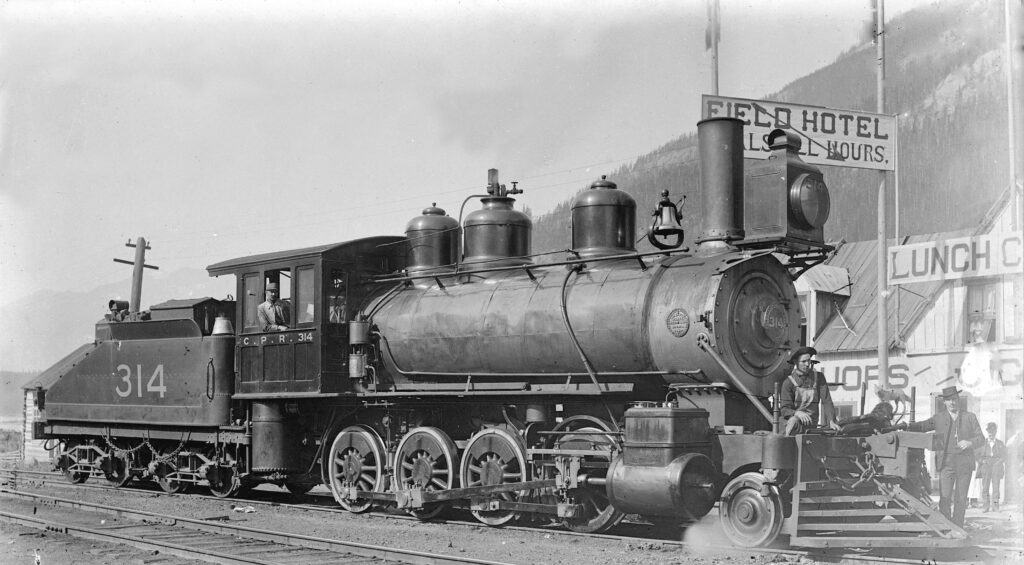Wiper’s In Field, BC

In the summer of 1926, Peter Linton and his twin brother, David, were hired by the Canadian Pacific Railway to work as locomotive “wipers” in Field, B.C. There, Peter found his vocation and his avocation. He was very mechanically inclined and he loved those big black snorting mountain steam engines with an enduring passion. When Peter wasn’t wiping engines or calling crews, he was fixing every broken gadget he could get his hands on, his specialty being clocks.
It was in Field that Peter had a close brush with death. The wipers shared any extra firing trips “on the hill” when an extra fireman was needed and there wasn’t time to get a regular fireman from Calgary.
Once a heavy train was being hauled east through the Spiral Tunnels with two locomotives on the head end, one in the center of the freight and one more pushing at the rear end.
In spite of all these engines, the train stalled on the steep grade. The two engines in the middle were inside one of the tunnels which were not then equipped with fans to blow away the exhaust. Instead of backing down the hill until those middle engines were clear, the engineer on the head end made repeated efforts to lift the train and haul it forward. The crew in the middle were severely gassed by the smoke. They had not been able to leave their engine and walk out of the tunnel as there wasn’t enough space between the walls and the engine. An engineer did die from the effects of this incident.
Peter’s lungs were badly burned but being young and healthy, he was more fortunate. His mother, who lived in Golden, nursed him until his recovery which took nearly a year.
In the late 1920s, Peter and David worked as firemen, chiefly in Revelstoke, but Peter did work for a time in Nelson, but by 1930, the world-wide “Depression” had arrived and work on the railroad had diminished. Peter and David had to take any work they could find and it was during this period that they found summer employment on the Big Bend Highway.
By the late summer of 1941, business had improved on the C.P.R. and Peter was rehired as a wiper and replacement fireman. One day in Field, Engineer Johnson and his fireman climbed on their locomotive, ready to pull out for Revelstoke. Mr. Johnson suddenly became violently ill and Peter had to pilot that train to Revelstoke. There he was set up as a fireman for several weeks and then transferred to Cranbrook. In 1945, Peter became an engineer in freight service running to Kimberley, Golden, Nelson and Crowsnest.
On January 6, 1950, Peter and the rest of his crew were standing on the passing track at Fassifern, five miles west of Cranbrook, waiting for the eastbound passenger train to pass them. A careless new brakeman had turned the switch the wrong way. The heavy passenger train thundered down the hill at a speed of 35 miles per hour right into the standing freight, a head-on collision. Peter was killed instantly. The tail end brakeman also died in the crash. There were injuries to the crew of the passenger train as well but no passengers were hurt.
